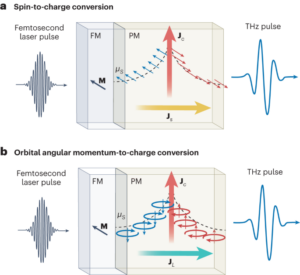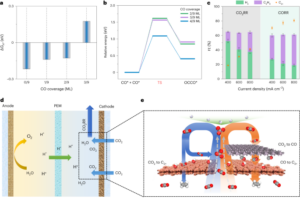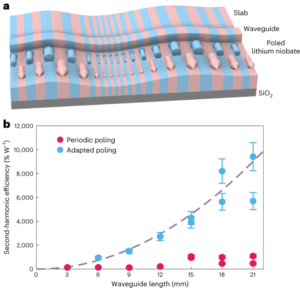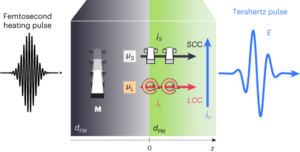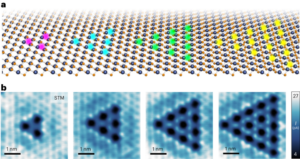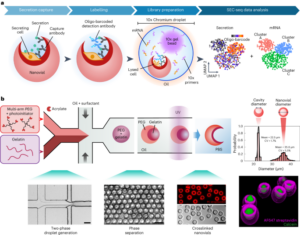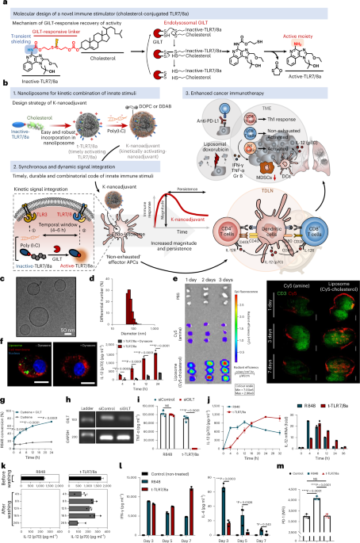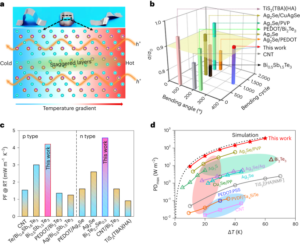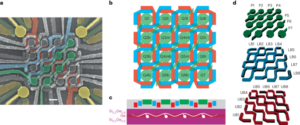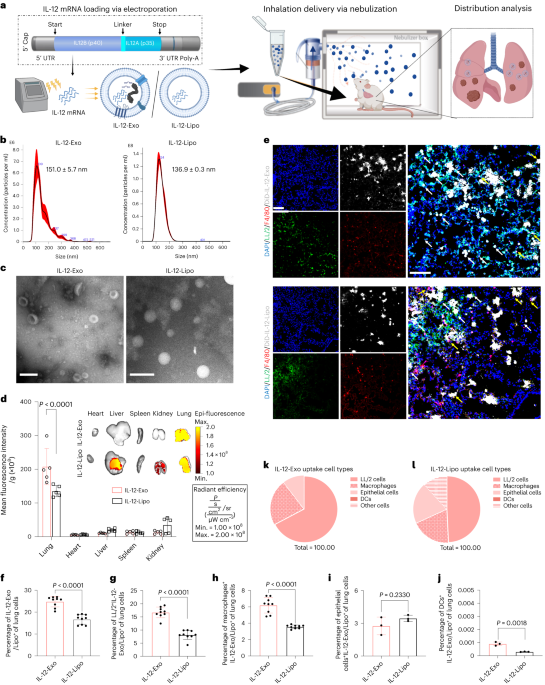
Wolchok, J. D. et al. Overall survival with combined nivolumab and ipilimumab in advanced melanoma. N. Engl. J. Med. 377, 1345–1356 (2017).
Ito, A., Kondo, S., Tada, K. & Kitano, S. Clinical development of immune checkpoint inhibitors. BioMed. Res. Int. 2015, 605478 (2015).
Anderson, K. G., Stromnes, I. M. & Greenberg, P. D. Obstacles posed by the tumor microenvironment to T cell activity: a case for synergistic therapies. Cancer Cell 31, 311–325 (2017).
Shi, Y. et al. Next-generation immunotherapies to improve anticancer immunity. Front. Pharmacol. 11, 566401 (2020).
Mirlekar, B. & Pylayeva-Gupta, Y. IL-12 family cytokines in cancer and immunotherapy. Cancers (Basel). 13, 167 (2021).
Del Vecchio, M. et al. Interleukin-12: biological properties and clinical application. Clin. Cancer Res. 13, 4677–4685 (2007).
Trinchieri, G. Interleukin-12 and the regulation of innate resistance and adaptive immunity. Nat. Rev. Immunol. 3, 133–146 (2003).
Nguyen, K. G. et al. Localized interleukin-12 for cancer immunotherapy. Front Immunol. 11, 575597 (2020).
Moynihan, K. D. et al. Eradication of large established tumors in mice by combination immunotherapy that engages innate and adaptive immune responses. Nat. Med. 22, 1402–1410 (2016).
Mace, T. A. et al. IL-6 and PD-L1 antibody blockade combination therapy reduces tumour progression in murine models of pancreatic cancer. Gut 67, 320–332 (2018).
Agarwal, Y. et al. Intratumourally injected alum-tethered cytokines elicit potent and safer local and systemic anticancer immunity. Nat. Biomed. Eng. 6, 129–143 (2022).
Jorgovanovic, D., Song, M., Wang, L. & Zhang, Y. Roles of IFN-γ in tumor progression and regression: a review. Biomark. Res. 8, 49 (2020).
Hotz, C. et al. Local delivery of mRNA-encoded cytokines promotes antitumor immunity and tumor eradication across multiple preclinical tumor models. Sci. Transl. Med. 13, eabc7804 (2021).
Li, Y. et al. Multifunctional oncolytic nanoparticles deliver self-replicating IL-12 RNA to eliminate established tumors and prime systemic immunity. Nat. Cancer 1, 882–893 (2020).
Liu, J. Q. et al. Intratumoral delivery of IL-12 and IL-27 mRNA using lipid nanoparticles for cancer immunotherapy. J. Control. Release 345, 306–313 (2022).
Liu, M. A. A comparison of plasmid DNA and mRNA as vaccine technologies. Vaccines 7, 37 (2019).
Sangro, B. et al. Phase I trial of intratumoral injection of an adenovirus encoding interleukin-12 for advanced digestive tumors. J. Clin. Oncol. 22, 1389–1397 (2004).
Qiu, N. et al. Tumor-associated macrophage and tumor-cell dually transfecting polyplexes for efficient interleukin-12 cancer gene therapy. Adv. Mater. 33, e2006189 (2021).
Hewitt, S. L. et al. Intratumoral IL12 mRNA therapy promotes TH1 transformation of the tumor microenvironment. Clin. Cancer Res. 26, 6284–6298 (2020).
Aslan, C. et al. Exosomes for mRNA delivery: a novel biotherapeutic strategy with hurdles and hope. BMC Biotechnol. 21, 20 (2021).
Popowski, K. D. et al. Inhalable dry powder mRNA vaccines based on extracellular vesicles. Matter 5, 2960–2974 (2022).
O’Brien, K., Breyne, K., Ughetto, S., Laurent, L. C. & Breakefield, X. O. RNA delivery by extracellular vesicles in mammalian cells and its applications. Nat. Rev. Mol. Cell Biol. 21, 585–606 (2020).
Zickler, A. M. & El Andaloussi, S. Functional extracellular vesicles aplenty. Nat. Biomed. Eng. 4, 9–11 (2020).
Cheng, K. & Kalluri, R. Guidelines for clinical translation and commercialization of extracellular vesicles and exosomes based therapeutics. Extracell. Vesicle 2, 100029 (2023).
Dinh, P. C. et al. Inhalation of lung spheroid cell secretome and exosomes promotes lung repair in pulmonary fibrosis. Nat. Commun. 11, 1064 (2020).
Wang, Z. et al. Exosomes decorated with a recombinant SARS-CoV-2 receptor-binding domain as an inhalable COVID-19 vaccine. Nat. Biomed. Eng. 6, 791–805 (2022).
Li, Z. et al. Cell-mimicking nanodecoys neutralize SARS-CoV-2 and mitigate lung injury in a non-human primate model of COVID-19. Nat. Nanotechnol. 16, 942–951 (2021).
Douguet, L. et al. A small-molecule P2RX7 activator promotes anti-tumor immune responses and sensitizes lung tumor to immunotherapy. Nat. Commun. 12, 653 (2021).
Casanova-Acebes, M. et al. Tissue-resident macrophages provide a pro-tumorigenic niche to early NSCLC cells. Nature 595, 578–584 (2021).
Zhu, X. et al. Comprehensive toxicity and immunogenicity studies reveal minimal effects in mice following sustained dosing of extracellular vesicles derived from HEK293T cells. J. Extracell. Vesicles 6, 1324730 (2017).
Mizrak, A. et al. Genetically engineered microvesicles carrying suicide mRNA/protein inhibit schwannoma tumor growth. Mol. Ther. 21, 101–108 (2013).
Kojima, R. et al. Designer exosomes produced by implanted cells intracerebrally deliver therapeutic cargo for Parkinson’s disease treatment. Nat. Commun. 9, 1305 (2018).
Usman, W. M. et al. Efficient RNA drug delivery using red blood cell extracellular vesicles. Nat. Commun. 9, 2359 (2018).
Lieschke, G. J., Rao, P. K., Gately, M. K. & Mulligan, R. C. Bioactive murine and human interleukin-12 fusion proteins which retain antitumor activity in vivo. Nat. Biotechnol. 15, 35–40 (1997).
Tsai, S. J. et al. Exosome-mediated mRNA delivery in vivo is safe and can be used to induce SARS-CoV-2 immunity. J. Biol. Chem. 297, 101266 (2021).
Li, B. et al. Combinatorial design of nanoparticles for pulmonary mRNA delivery and genome editing. Nat. Biotechnol. 41, 1410–1415 (2023).
Gao, S., Wang, L., Liu, W., Wu, Y. & Yuan, Z. The synergistic effect of homocysteine and lipopolysaccharide on the differentiation and conversion of raw264.7 macrophages. J. Inflamm. 11, 13 (2014).
Mei, X. et al. An inhaled bioadhesive hydrogel to shield non-human primates from SARS-CoV-2 infection. Nat. Mater. 22, 903–912 (2023).
Olivo Pimentel, V. et al. Releasing the brakes of tumor immunity with anti-PD-L1 and pushing its accelerator with L19-IL2 cures poorly immunogenic tumors when combined with radiotherapy. J. Immunother. Cancer 9, e001764 (2021).
Leonard, J. P. et al. Effects of single-dose interleukin-12 exposure on interleukin-12-associated toxicity and interferon-gamma production. Blood 90, 2541–2548 (1997).
Chiocca, E. A. et al. Regulatable interleukin-12 gene therapy in patients with recurrent high-grade glioma: results of a phase 1 trial. Sci. Transl. Med. 11, eaaw5680 (2019).
Liu, Y. et al. Armored inducible expression of IL-12 enhances antitumor activity of glypican-3-targeted chimeric antigen receptor-engineered T cells in hepatocellular carcinoma. J. Immunol. 203, 198–207 (2019).
Zhu, M. L., Nagavalli, A. & Su, M. A. Aire deficiency promotes TRP-1-specific immune rejection of melanoma. Cancer Res. 73, 2104–2116 (2013).
Lizotte, P. H. et al. In situ vaccination with cowpea mosaic virus nanoparticles suppresses metastatic cancer. Nat. Nanotechnol. 11, 295–303 (2015).
Gollob, J. A. et al. Phase I trial of twice-weekly intravenous interleukin 12 in patients with metastatic renal cell cancer or malignant melanoma: ability to maintain IFN-gamma induction is associated with clinical response. Clin. Cancer Res. 6, 1678–1692 (2000).
Smyth, M. J., Taniguchi, M. & Street, S. E. The anti-tumor activity of IL-12: mechanisms of innate immunity that are model and dose dependent. J. Immunol. 165, 2665–2670 (2000).
Xue, D. et al. A tumor-specific pro-IL-12 activates preexisting cytotoxic T cells to control established tumors. Sci. Immunol. 7, eabi6899 (2022).
Karin, N. Chemokines in the landscape of cancer immunotherapy: how they and their receptors can be used to turn cold tumors into hot ones? Cancers 13, 6317 (2021).
Jones, D. S. 2nd et al. Cell surface-tethered IL-12 repolarizes the tumor immune microenvironment to enhance the efficacy of adoptive T cell therapy. Sci. Adv. 8, eabi8075 (2022).
Rubinstein, M. P. et al. Ex vivo interleukin-12-priming during CD8(+) T cell activation dramatically improves adoptive T cell transfer antitumor efficacy in a lymphodepleted host. J. Am. Coll. Surg. 214, 700–707 (2012).
Müller, J. M. et al. In vivo induction of interferon gamma expression in grey horses with metastatic melanoma resulting from direct injection of plasmid DNA coding for equine interleukin 12. Schweiz Arch. Tierheilkd. 153, 509–513 (2011).
Goldszmid, R. S. et al. NK cell-derived interferon-γ orchestrates cellular dynamics and the differentiation of monocytes into dendritic cells at the site of infection. Immunity 36, 1047–1059 (2012).
Kerkar, S. P. et al. Collapse of the tumor stroma is triggered by IL-12 induction of Fas. Mol. Ther. 21, 1369–1377 (2013).
Geall, A. J. et al. Nonviral delivery of self-amplifying RNA vaccines. Proc. Natl Acad. Sci. USA 109, 14604–14609 (2012).
- SEO Powered Content & PR Distribution. Get Amplified Today.
- PlatoData.Network Vertical Generative Ai. Empower Yourself. Access Here.
- PlatoAiStream. Web3 Intelligence. Knowledge Amplified. Access Here.
- PlatoESG. Carbon, CleanTech, Energy, Environment, Solar, Waste Management. Access Here.
- PlatoHealth. Biotech and Clinical Trials Intelligence. Access Here.
- Source: https://www.nature.com/articles/s41565-023-01580-3
- :is
- ][p
- 06
- 1
- 10
- 11
- 12
- 13
- 14
- 15%
- 16
- 167
- 17
- 19
- 20
- 2000
- 2011
- 2012
- 2013
- 2014
- 2015
- 2016
- 2017
- 2018
- 2019
- 2020
- 2021
- 2022
- 2023
- 22
- 23
- 24
- 25
- 26
- 27
- 28
- 29
- 2nd
- 30
- 31
- 32
- 33
- 35%
- 36
- 39
- 40
- 41
- 43
- 46
- 49
- 50
- 51
- 52
- 53
- 54
- 58
- 7
- 8
- 9
- a
- ability
- accelerator
- across
- Activation
- activity
- adaptive
- advanced
- AL
- am
- an
- and
- antibody
- Application
- applications
- ARE
- article
- AS
- associated
- At
- b
- based
- Basel
- BE
- blood
- by
- CAN
- Cancer
- Cargo
- carrying
- case
- cell
- Cells
- cellular
- chemokines
- click
- Clinical
- Coding
- cold
- Collapse
- combination
- combined
- commercialization
- comparison
- comprehensive
- control
- Conversion
- COVID-19
- cytokines
- cytotoxic
- deliver
- delivery
- dependent
- Derived
- Design
- Designer
- Development
- direct
- Disease
- dna
- domain
- dose
- dosing
- dramatically
- drug
- Drug Delivery
- dry
- during
- dynamics
- e
- E&T
- Early
- editing
- effect
- effects
- efficacy
- efficient
- el
- eliminate
- encoding
- engages
- engineered
- enhance
- Enhances
- established
- Ether (ETH)
- Exposure
- expression
- family
- following
- For
- from
- functional
- fusion
- genome
- greenberg
- Growth
- guidelines
- hope
- host
- HOT
- How
- http
- HTTPS
- human
- Hurdles
- i
- immune
- immunity
- immunotherapies
- immunotherapy
- improve
- improves
- in
- induction
- infection
- innate
- interleukin
- into
- intravenous
- ITS
- landscape
- large
- LINK
- local
- macrophages
- maintain
- matt
- mechanisms
- mice
- minimal
- Mitigate
- model
- models
- MOL
- mRNA
- multiple
- nanotechnology
- Nature
- next-generation
- niche
- NK
- novel
- obstacles
- of
- on
- ones
- or
- overall
- Overall Survival
- Parkinson’s Disease
- patients
- phase
- plato
- Plato Data Intelligence
- PlatoData
- posed
- potent
- preclinical
- Prime
- Produced
- Production
- progression
- promote
- promotes
- properties
- Proteins
- provide
- Pushing
- R
- Radiotherapy
- recurrent
- Red
- reduces
- reference
- regression
- Regulation
- releasing
- renal
- repair
- Resistance
- response
- responses
- resulting
- Results
- retain
- reveal
- review
- RNA
- roles
- s
- safe
- safer
- SARS-CoV-2
- Scholar
- SCI
- Shield
- site
- song
- Strategy
- street
- studies
- Suicide
- survival
- sustained
- synergistic
- systemic
- T
- T cells
- Technologies
- that
- The
- The Landscape
- their
- Therapeutic
- therapeutics
- therapies
- therapy
- they
- to
- transfer
- Transformation
- Translation
- treat
- treatment
- trial
- triggered
- tumor
- tumors
- TURN
- used
- using
- Vaccine
- vaccines
- virus
- vivo
- W
- wang
- when
- which
- with
- wu
- X
- Yuan
- zephyrnet
- zhang

